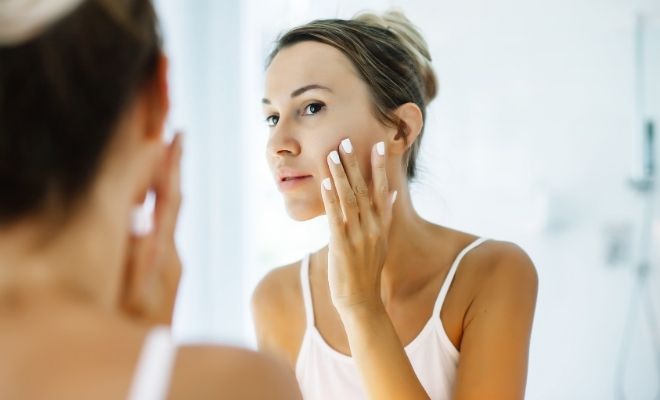
Lifestyle
Tips for Treating Hormonal Acne
Is that another pimple on your chin? Blemishes are never a welcome sight, whether it’s on your face or in another location of the body. Teenagers will get hormonal acne during puberty, but it can affect you at any age, as it results from fluctuations in your body’s hormones. It’s especially common in women due to factors like menstruation and menopause.
But what steps can you take to prevent hormonal acne? Read on for our brief guide on the best tips for treating hormonal acne, and rid yourself of its menace for good.
Characteristics of Hormonal Acne
During puberty, hormonal acne occurs in the T-zone that includes your forehead, nose, and chin. Hormonal adult acne typically forms around the jawline and cheeks. For some people, it takes the form of blackheads, small pimples that come to a cyst, or whiteheads. Not all acne is the same. Whiteheads, for example, contain many natural oils and come to an unsightly white head. Luckily, there are specific whitehead treatments and prevention tactics like washing your face after working out, and keeping your hair clean to avoid excess oils on your hairline.
A Basic Skin Care Regimen
First, make sure you’re performing a few basics every day to lessen the chance of flare-ups:
- Wash your face both in the morning and the evening.
- Apply no more than a pea-sized amount of any acne product. Applying too much can dry out your skin and irritate it even more.
- Wear sunscreen every day.
- Use only non-comedogenic products to reduce your risk of clogged pores.
Junk food alone does not cause acne, but there are certain foods that you might want to avoid. Everyone’s body is different, so diet will affect everyone differently as well. You may want to consider removing the following foods from your diet if you cannot break the breakouts:
- Excessive Sugar
- Dairy products
- Refined carbs, such as white bread and pasta
- Red meats
The exact timeline for reducing hormonal acne varies from person to person. Being proactive can help prevent hormonal acne-related breakouts. But be patient. It can take up to ten weeks for an acne regimen to take effect. If your acne persists, talk to your doctor about medicinal and natural remedies that may be right for you. We hope this brief guide on the best tips for treating hormonal acne helps you to feel more confident and radiant.




3 Comments